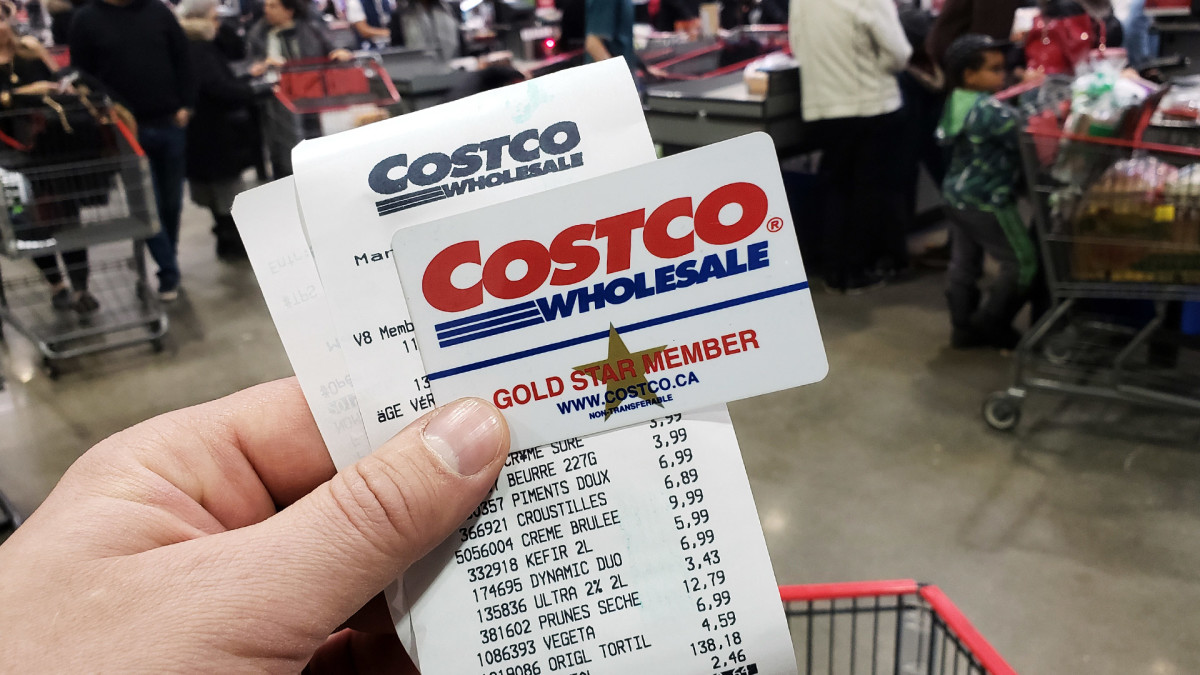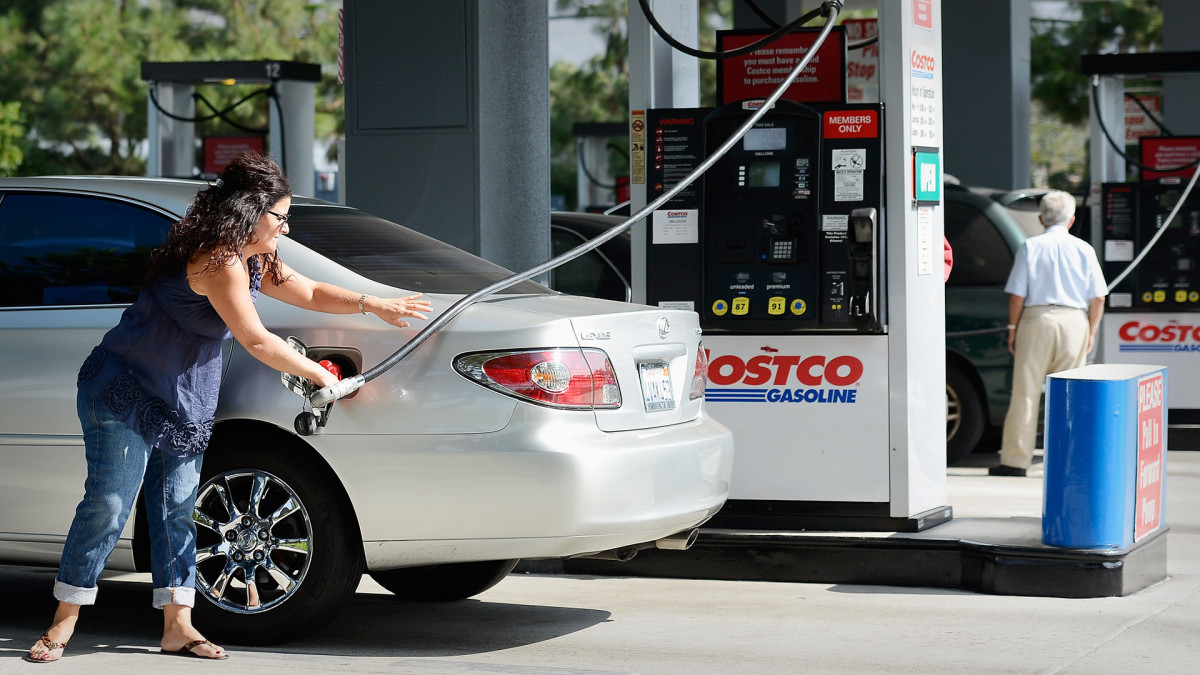
Costco has a very different relationship with its customers than most chains do.
The warehouse club has always been very transparent with its members when it comes to pricing. During its earnings calls, the company goes deeply into the impact of inflation, how it handles rising (or falling) gasoline prices, and the pressure it puts on vendors to keep pricing down.
Related: Costco makes major change customers will notice right away
Costco (COST) has been transparent even when it's not flattering for the company. The chain's former chief financial officer, Richard Galanti, admitted that the warehouse club sometimes takes a wide profit margin on gasoline sales when prices are falling.
"You know, the thing about gas is, I think everybody out there that has gas stations, what we have found is we've been able to see improved profitability, not just in the last quarter or two, but over the last few years, the last three to five years, improved profitability in gas because others are making more and we're allowed to make a little more," Galanti said during Costco's 2024 first-quarter earnings call.
The chain justifies that, according to Galanti, by keeping prices down and making a thinner margin when gas prices are climbing.
Members may have mixed feelings about that strategy, but Costco has not hidden its pricing practices.
The company claims pricing transparency on its website for items that might be cheaper when customers buy them in stores, but a new lawsuit that's seeking class-action status says that's not the case.
Sign up for the Come Cruise With Me newsletter to save money on your next (or your first) cruise.

Image source: Kevork Djansezian/Getty Images
Costco has a clear pricing policy
Most people know that prices can be different online than they are in a store. Anyone who regularly orders food delivered by Uber Eats, DoorDash and similar companies has generally seen that prices for delivered food can be much higher than picking it up yourself.
That's generally not disclosed by the food-delivery companies, but some chains do make clear when they have an added fee for pickup. Waffle House, for example, charges 20% for takeout orders — with half of it going to the person who prepares your order and half to the company.
Costco also appears to be transparent about potential pricing differences between its website and its stores.
"As you may already know, not all products sold on Costco.com are available at your local Costco warehouse. Also, products sold online may have different pricing than the same products sold at your local Costco warehouse," the company shared.
More Retail:
- Ulta CEO sounds the alarm on a growing problem
- Lululemon releases a first-of-its-kind product
- Target store introduces a new 'over 18' policy
- Amazon launches genius new subscription product
Costco also explained the reason for the higher prices.
"That’s due to the shipping and handling fees charged for delivery to your home or business. And when an item is available both online and in the warehouse, you’ll see the message, 'Item may be available in your local warehouse for a lower, non-delivered price,' on its product page on Costco.com," the company added.
A new lawsuit in U.S. District Court for the Western District of Washington, alleges otherwise.
Want the latest cruise news and deals? Sign up for the Come Cruise With Me newsletter.
Costco lawsuit seeks class-action status
The lawsuit, which seeks class-action status, is being brought by Annie Song "on behalf of herself and all others similarly situated," according to the June 12 filing.
"This is a proposed class action seeking monetary damages and injunctive relief from Defendant Costco Wholesale Corporation arising from its fraudulent and material omissions regarding its deceptive markup of products sold online at Costco.com," the complaint alleges.
Broadly, Song, a Connecticut resident, has sued the Issaquah, Wash., company for what the complaint says is routinely omitting the promised disclosure when online purchases cost more than the same items cost in-store.
The lawsuit reads in part:
On its website, Costco explicitly promises consumers it will disclose whenever a product is more expensive online than the same product offered for sale in-store by stating that the “[i]tem may be available in your local warehouse for a lower, non-delivered price.”
Despite its express representation, Costco routinely omits this material message and fails to disclose to consumers in those instances that they will be paying more for a product sold on Costco.com than if they had purchased the same exact product in-store at their local Costco Warehouse.
Song's lawsuit alleges that Costco's failure to disclose the higher prices is deceptive.
Related: Bankruptcy Watch: Discount retail chain says it may have to close
"Costco’s failure to uphold its promise to consumers by fraudulently omitting its online product mark-up scheme is material to consumers’ purchasing decisions, deceives consumers into making online purchases for delivery that they otherwise would not make, and has caused them to suffer monetary injury by paying more for items than they otherwise would have had they purchased those same items in-store," according to the filing.
Costco did not immediately respond to a request for comment on the lawsuit.
Costco shares fell 1.6% on Friday to $848.31. The shares were off 0.9% for the week. They're up 28.5% on the year.
Related: Veteran fund manager picks favorite stocks for 2024







